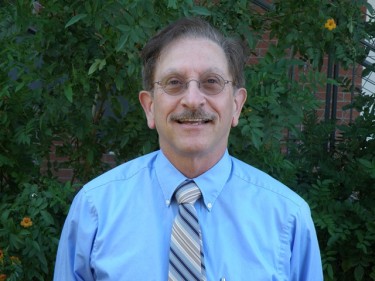By Rick Vacek
GCU News Bureau
Left brain or right brain, that is the question.
But no matter whether learners are more organized (left brain) or more creative (right brain), Learner Dissertation Pages (LDPs) are the answer in the College of Doctoral Studies at Grand Canyon University.
In January, the college introduced the LDPs as an evolutionary advancement to the highly successful Doctoral Community Network, which in just four years has grown to include more than 4,000 doctoral learners and faculty. LDPs are designed to put the learner and the entire dissertation committee together in a virtual workspace that allows all communications and files to be easily accessed over the extended period of time required to complete a doctoral dissertation.
Better communication typically enhances the probability of a successful dissertation experience, which is everything in the doctoral world. GCU already had transformed the doctoral experience by incorporating exemplary faculty and counseling support while also introducing the dissertation process much earlier than elsewhere. Now it has gone one step further with the LDPs.
Dr. Ronald Berman, the college’s executive director of academic excellence, said the goal was to provide support from the beginning of the dissertation process, adding, “We’re doing something over and above anything that’s been done before.”
The Chronicle of Higher Education reported in July 2013 that 50 percent of doctoral students leave school without finishing, most often because of the isolation they feel.
“It can be a very lonely, difficult experience because you go from a structured classroom experience and now it’s, ‘OK, go write a book,’” Berman said.
The Chronicle story argued that every student who leaves is an avoidable loss and added, “A big reason for that is because graduate programs do such a bad job of retaining their students.” The “Ph.D. Completion Project,” a study sponsored by the Council of Graduate Schools in 2010, suggested a set of “promising practices,” including early and regular progress review and a more encouraging program environment.
In other words, communication – a word that sparks Berman’s considerable passion for what GCU is doing.
“This is different from a traditional doctoral program,” he said. “We talk to people. We listen. A lot of doctoral programs and a lot of professors (at other institutions) are very aloof. It’s all about communication. If you communicate, you have a better shot than if you don’t. … It’s all part of not being isolated. You want to build this community. It’s building that relationship.”
The LDP sites are effective partly because they’re so simple and easy to use. That’s by design.
“We didn’t want to get too fancy,” Berman said. “We don’t want to compete with Facebook.”
At the top of the page, the members of the dissertation committee are listed – the dissertation chair, the content expert and the methodologist – plus the academic quality reviewer (AQR) and the student. Any communication among committee members is right in the middle of the page, which means no one is ever left out of the loop. A calendar for the group’s activities is in the upper right corner. Another valuable feature is that all versions of the dissertation are available to everyone in the workspace, reducing the danger of confusion over which version is the latest.
Feedback from committee members and learners has been mostly positive, Berman said.
Sharwonda Peek, a middle school principal in Jacksonville, Fla., said the process was “a little taxing” at the beginning but is “progressively getting easier to work.”
“I’m very much a proponent of change, but, like most people, I’m also resistant to change,” she said. “I’m not organized at all. But it is making things easier. The webinars and PowerPoint presentations they have online are helpful.”
Peek’s dissertation chair, Dr. Nicholas Markette, said the new pages are “a big improvement,” especially in the area of version control. He used to have a naming protocol for the hundreds of revisions in every dissertation, but the LDPs have streamlined the process. Now you can readily see who filed the new version and when they did it.
Markette estimated that about three-quarters of his learners picked up the new system right away. Put Jamie North of Lake City, Fla., who describes herself as a “visual person,” in that 75 percent.
“I felt like I was fine with it from the start,” she said. “I’m a trial-and-error learner, so I just figure things out as I go. But it’s pretty user-friendly, so I’m comfortable with it.”
Berman has several more changes in mind in the next few months to make things even more comfortable as the number of learners who have unique dissertation pages increases from the current number, 528, to more than a thousand. Next on the horizon, if all goes right, is technology that will link together all dissertation students who have the same dissertation chair. That would enable those students to easily share ideas, research and insight from a common perspective.
GCU’s doctoral programs are too new to have statistically significant retention figures yet, but Berman is confident that GCU will be ahead of the curve thanks to its multiyear investment in providing extensive support for doctoral learners.
“The main reasons students stay at an institution is their relationship with a faculty member or their relationships with other students,” he said. “If you can connect with just one other person, that can be the difference between staying and leaving.”
Which is why the LDPs are a no-brainer.
Contact Rick Vacek at 639.8203 or [email protected].





































































